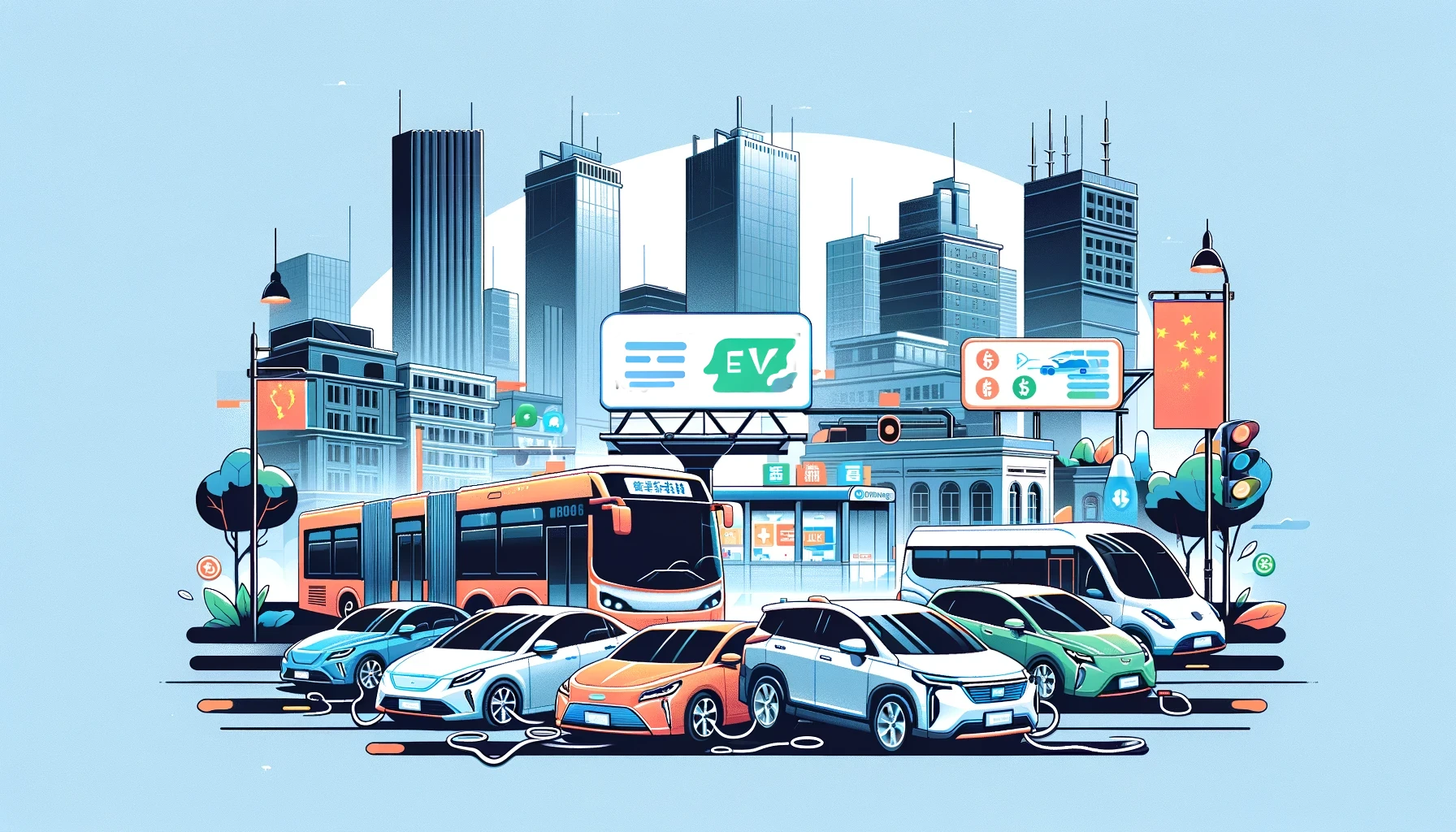
Beijing, China – Amid a turbulent period marked by intense competition and price wars, China’s electric vehicle (EV) industry is poised for a promising resurgence in 2024, fueled by government subsidies and escalating consumer interest. Industry leaders like Nio, Xpeng, and Li Auto are optimistic about the impending boost in sales, signaling a pivotal moment for the world’s largest EV market.
After enduring a fierce price war that led to an average price reduction of 10% across 50 models from various brands, China’s leading EV manufacturers are now seeing a silver lining thanks to new government interventions. Beijing’s recent announcement of substantial subsidies for EV buyers is expected to dramatically enhance market dynamics and accelerate the transition from petrol to electric vehicles.
Phate Zhang, founder of Shanghai-based EV data provider CnEVPost, highlighted the significant impact of the new policy. “The subsidy for EV purchases has notably boosted the top players,” Zhang noted. “There is also a rising expectation that the intense price war will soon end, helping these companies to increase their vehicle margins.”
In late April, the Chinese government unveiled a game-changing subsidy program, offering 10,000 yuan (approximately US$1,380) to consumers who replace their petrol cars with electric ones. This incentive, valid until the end of the year, could catalyze a substantial increase in EV sales, which already comprise about 60% of the global market.
A May research note from Everbright Securities projected that this subsidy could lead to an additional 2 million EV units sold in 2024, marking a significant boost for China’s auto industry.
The inception of subsidies in 2009 has seen China’s EV sales increase fourfold. With the latest financial incentives, companies are preparing for substantial growth in their sales volumes:
- Nio: The Shanghai-based manufacturer expects an 86.3% increase in deliveries from April to June, with projected sales reaching 56,000 units.
- Xpeng: Based in Guangzhou, Xpeng anticipates a rise in second-quarter sales by up to 46.6%, totaling 32,000 units.
- Li Auto: From Beijing, Li Auto forecasts a 27% increase in quarterly deliveries, potentially reaching 110,000 units.
Among these companies, only Li Auto has reported profits. However, Deutsche Bank predicts that margins at Nio and Xpeng will improve in 2024, driven by higher sales volumes, an improved product mix, and potentially reduced promotional activities.
All three companies have made significant advancements in producing battery-powered cars with cutting-edge features such as autonomous driving technology and voice-activated control systems.
- Nio’s Market Expansion: Recently, Nio launched its mass-market brand, Onvo, with the introduction of the L60 sport-utility vehicle. Priced at 219,900 yuan, it significantly undercuts Tesla’s Shanghai-made Model Y by 30,000 yuan (12%). Nio’s CEO, William Li, mentioned that this new brand would positively impact the company’s profitability once monthly deliveries exceed 20,000 units. The L60 is set to enter mass production and commence deliveries in September.
- Xpeng’s Affordable Range: Xpeng plans to introduce a mass-market brand aimed at providing more affordable vehicles to middle- and low-income consumers.
Nick Lai, an analyst with JPMorgan, anticipates significant industry shifts due to ongoing competition. “It’s clear that we don’t need 100 brands in the Chinese auto market,” Lai stated. “Some will be forced to exit, and some will stay, heralding transformative consolidation in the industry.”
The sector’s growth projections remain robust, with Fitch Ratings predicting a 20% increase in 2024, following a 37% growth rate in 2023. This optimism is further buoyed by BYD, the world’s largest EV maker, which initiated the first significant price cut in the sector in February. This reduction spanned nearly all its models, with cuts ranging from 5 to 20%.
A potential additional price cut of 10,300 yuan per vehicle by BYD, which represents 7% of the company’s average selling price, could drive the entire industry towards losses, as warned by Goldman Sachs.
| Company | Expected Increase in Deliveries | Notable Strategy |
|---|---|---|
| Nio | 86.3% | Launch of Onvo brand, L60 SUV |
| Xpeng | Up to 46.6% | Introduction of a more affordable range |
| Li Auto | 27% | Continued profitability |
China’s EV market is at a turning point, bolstered by governmental support and renewed market strategies by major players. As the industry braces for increased sales and possible consolidation, the global automotive landscape watches closely, recognizing China’s pivotal role in the electrification of transport.
Related News:
Featured Image courtesy of DALL-E by ChatGPT
